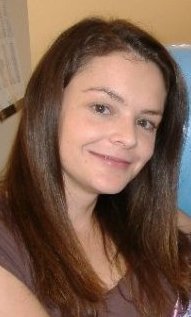How did you shape your first book?
My first book is confessional. When I read my poems from
the book at readings, it's like reading my diary aloud. Most of the poems were written 2008-2010 when
I was going through a divorce and then attempting to start my life over. I went
from being a full-time mother to working full-time at a church and spending far
too little time with the children, from being a wife to a lonely woman
searching for hope, love, security, etc., from being a MFA student to teaching
creative writing part-time at the college from which I graduated, from being an
atheist to a Christian. So much change in such a short amount of time. One of
my mentors, Steve Langan, told me to have the end of one poem speak to the next
poem's beginning. I attempted to do just that in my collection. The title comes
from a song I have liked for years by Brenda Lee. Here are the lyrics. After my family
was destroyed, I thought I was done, but I am still here, so I guess have more
work to do. We all do.
When you use the confessional form, is it purely confessional, or are you willing to sacrifice true events for some other aim: language, sound, truth, spontaneity, surprise?
No, not purely confessional. [Cat laughs.]
If it was I would be at the bottom of a river right now (see poem
"River" in my book). Sound and image are important to me so I will
adjust as necessary, but the emotion is always real.
What's up next from you? What are you working on now?
Persona poems have taken over my writing life. I have manuscripts written in the voices of
Eva Braun and Medea. I am writing a short series of poems to Putin in the voice
of his exwife. I have a chapbook written in the voice of Abel Washington, a
70-year-old man I created, who lives disconnected from society. To explore
different perspectives in this way is something I have not tried very often and
I enjoy it.
You seem drawn to driven, powerful women in difficult circumstances. Why is that?
 I have felt helpless most of my life, so I guess I now
prefer voices of power and control. I like to take on the persona of Medea in
poetry, for example, because she was wronged and she retaliated. I don't agree
with the murder of the children, but she exacted revenge, and she did it
without suffering repercussions. Her husband was left begging her for
compassion and she gave none. Eva is
portrayed is often as a naive mistress, some even claim she was ignorant of
Hitler's final solution, but she was the woman behind the man--the one person
he had to request things from--for example, Hitler was not able to bring his
dog Blondi out of her kennel or his room without her permission because her
dogs didn't like his dog and she didn't like Blondi either. Can you imagine the
most powerful man in the world at that time asking a young woman for permission
to do anything?
I have felt helpless most of my life, so I guess I now
prefer voices of power and control. I like to take on the persona of Medea in
poetry, for example, because she was wronged and she retaliated. I don't agree
with the murder of the children, but she exacted revenge, and she did it
without suffering repercussions. Her husband was left begging her for
compassion and she gave none. Eva is
portrayed is often as a naive mistress, some even claim she was ignorant of
Hitler's final solution, but she was the woman behind the man--the one person
he had to request things from--for example, Hitler was not able to bring his
dog Blondi out of her kennel or his room without her permission because her
dogs didn't like his dog and she didn't like Blondi either. Can you imagine the
most powerful man in the world at that time asking a young woman for permission
to do anything?Cat will be reading at The Petshop Gallery (2725 N 62nd Street, Omaha) on Wednesday, September 17 at 7pm as part of the poetry movement 100,000 Poets for Change. She will read with Laura Madeline Wiseman, Natasha Kessler-Rains, and Sarah McKinstry-Brown. Their reading focuses on the prevention of gender violence. Cat says about the movement, "Stories and details are what move people to action so it's imperative that poets and writers create and share work that gives a voice to those without one. Raising awareness is the first step to change."
For more information about this event, see the facebook event here.



No comments:
Post a Comment